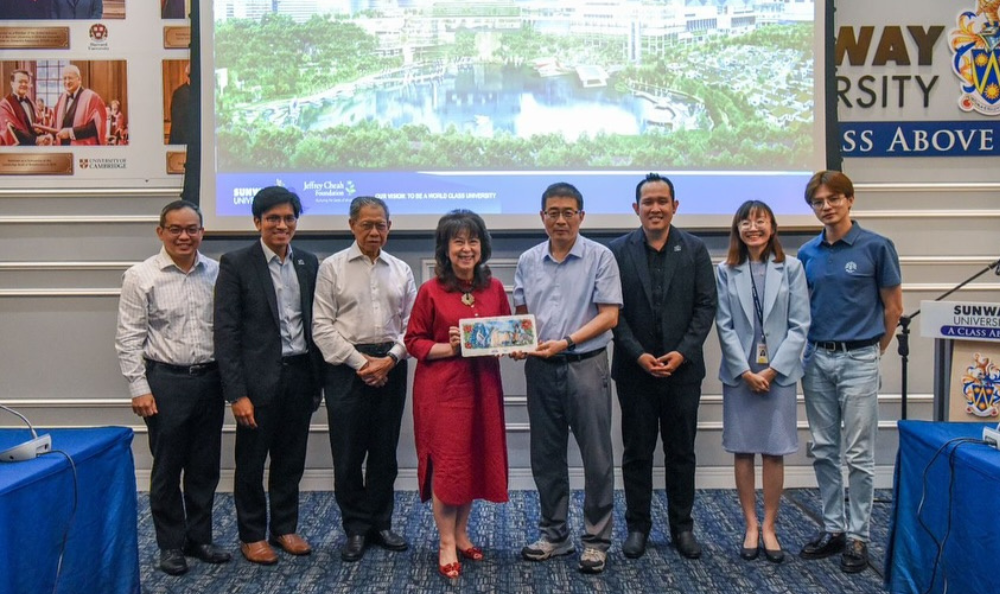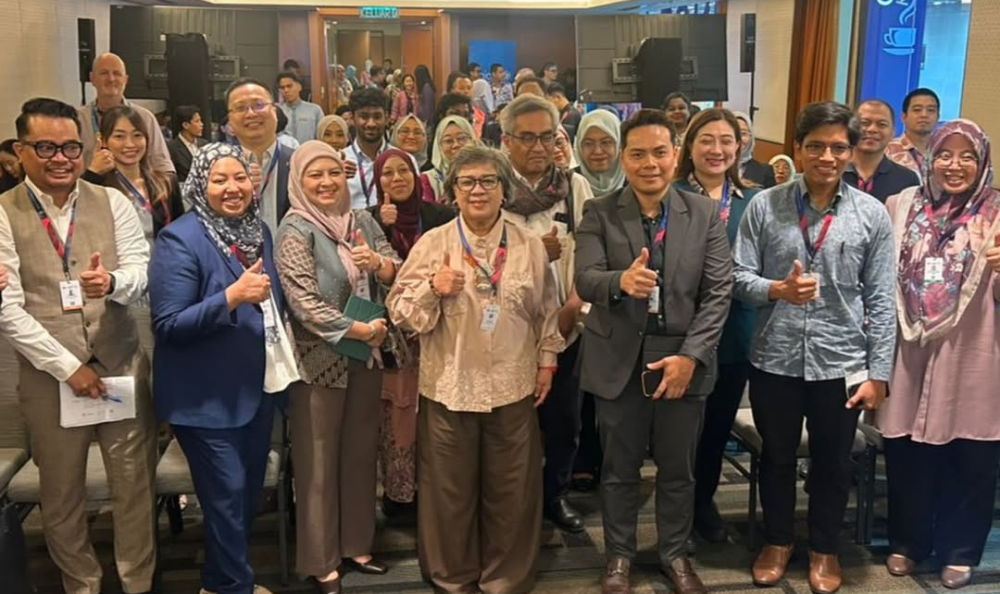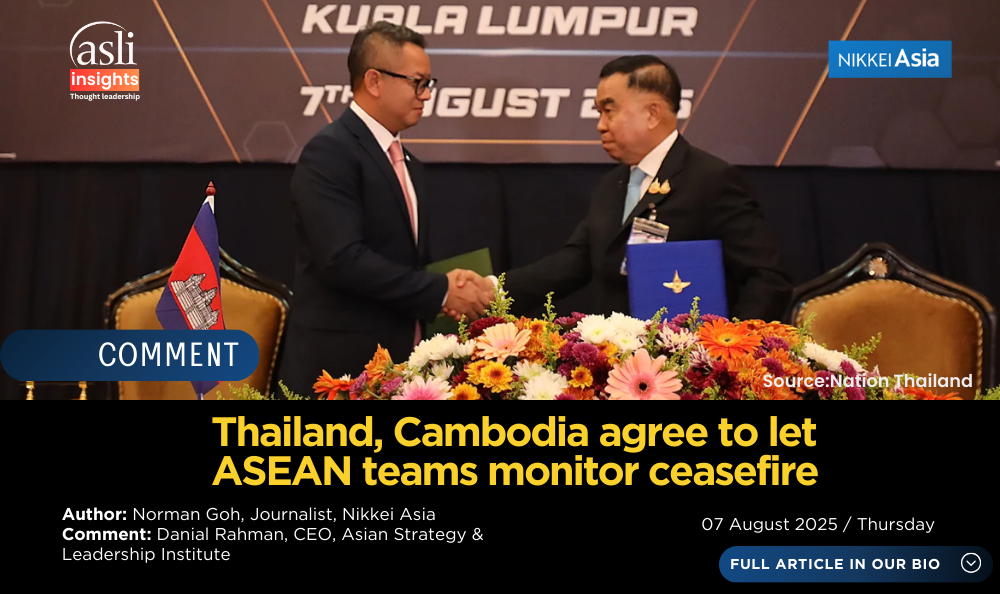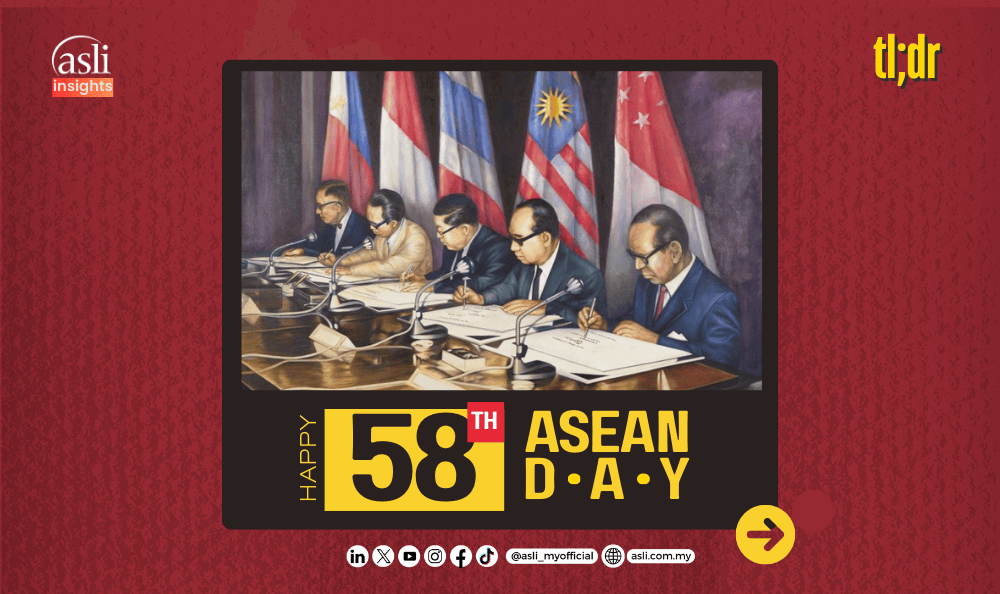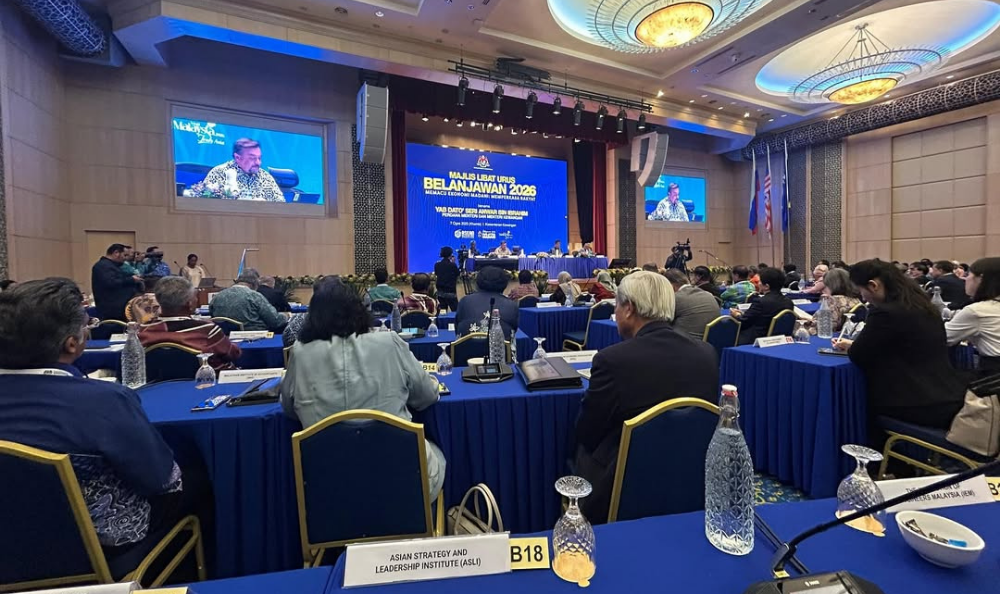.png)
ASLI INSIGHTS: Asia Unpacked | 25 October 2024
ASLI is back with more ASLI INSIGHTS: Asia Unpacked!
Stay tuned for more top news in Asia handpicked by ASLI and for our curated weekly roundup!
This week’s Asia top news:
1) BRICS Enhances Global Reach by Adding 13 New Partner Nations
At the recent BRICS summit in Kazan, 13 nations were officially designated as partner countries, marking a significant expansion for the bloc. The new partners include Algeria, Belarus, Bolivia, Cuba, Indonesia, Kazakhstan, Nigeria, Thailand, Turkey, Uganda, Uzbekistan, Vietnam, and Malaysia. This development aims to enhance BRICS's global influence, which now represents approximately 45% of the world's population and 25% of its GDP. The summit, attended by numerous leaders, emphasised the group's intent to challenge Western economic dominance and explore greater financial independence, particularly through reduced reliance on the US dollar.
Read more
- https://www.malaymail.com/news/malaysia/2024/10/24/malaysia-takes-major-step-towards-brics-membership-with-official-partner-status/154647
- https://www.aljazeera.com/news/2024/10/22/russias-brics-summit-whats-on-the-agenda-and-why-does-it-matter
2) ASEAN Stands Firm on Nuclear Disarmament at the UN
Ambassador Đặng Hoàng Giang, Việt Nam's Permanent Representative to the UN, reaffirmed ASEAN's commitment to achieving a nuclear weapon-free world during a recent UN General Assembly debate on disarmament. He highlighted the central role of the Treaty on the Non-Proliferation of Nuclear Weapons (NPT) and the Treaty on the Prohibition of Nuclear Weapons (TPNW) in achieving disarmament goals. Giang urged nuclear-armed states to fulfill their disarmament obligations and support the Nuclear Test Ban Treaty. He also stressed ASEAN's dedication to maintaining a nuclear-weapon-free Southeast Asia and highlighted cooperation with the International Atomic Energy Agency (IAEA) for peaceful nuclear energy use.
Read more
3) Prabowo Subianto Sworn in as Indonesia’s New President
President Prabowo Subianto was inaugurated as Indonesia's eighth president, pledging to prioritise the needs of all citizens. His administration features a record 109-member cabinet, the largest since 1966, designed to foster unity among diverse political factions. Prabowo aims to continue Joko Widodo's policies, emphasising economic self-sufficiency in food and energy. Investor confidence has improved, reflected in a stabilising stock market and a budget deficit target of 2.5% of GDP. However, concerns linger about potential inefficiencies and increased spending associated with his expansive cabinet, which may impact governance and accountability.
Read more
- https://www.channelnewsasia.com/asia/indonesia-swears-president-prabowo-subianto-vice-president-gibran-inauguration-4687356
- https://www.thestar.com.my/aseanplus/aseanplusnews/2024/10/22/prabowo-swears-in-largest-cabinet-since-1966
4) Vietnam Appoints General Luong Cuong as New President Amid Ongoing Political Turmoil
Vietnam has elected army general Luong Cuong as its new president, marking the country's fourth presidential change in 18 months amid a significant political upheaval driven by a widespread anti-corruption campaign. Cuong replaces To Lam, who remains the Communist Party's general secretary. His appointment aims to stabilise leadership dynamics and restore the "four pillars" of governance: the party chief, president, prime minister, and parliament head. Despite concerns about the increasing influence of military figures in governance, Cuong has pledged to promote Vietnam as a trusted global partner and to continue pursuing economic reforms.
Read more
- https://www.thestar.com.my/aseanplus/aseanplusnews/2024/10/21/vietnam-appoints-army-general-as-new-president-after-months-of-turmoil
- https://asia.nikkei.com/Politics/Vietnam-chooses-Gen.-Luong-Cuong-as-4th-president-since-2023
5) Vietnam Embraces Nuclear and Hydrogen in Energy Plan
Vietnam will amend its national power development plan (PDP8) to include nuclear energy and hydrogen, alongside expanding renewable sources like solar and wind. Minister Nguyen Hong Dien announced plans to boost power generation capacity from over 80 gigawatts (GW) to over 150 GW by 2030. The amendment aims to enhance energy security and support economic growth. Vietnam is exploring small modular reactors with countries such as South Korea and Russia, having previously shelved nuclear plans after the Fukushima disaster in 2011 due to safety concerns and budget constraints.
Read more
🌱 Empowering Leaders, Advancing Societies.
Follow us for Asia’s weekly highlights: https://linktr.ee/asli_myofficial
#ASLI #EmpoweringLeaders #AdvancingSocieties #Asia #News #BRICS #ASEAN #Indonesia #Vietnam
